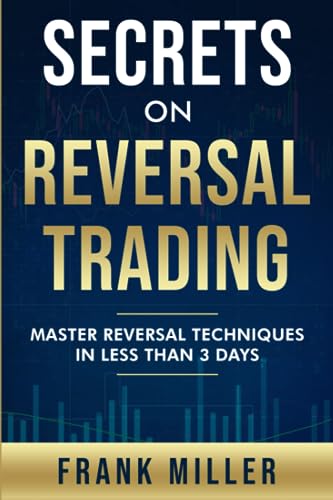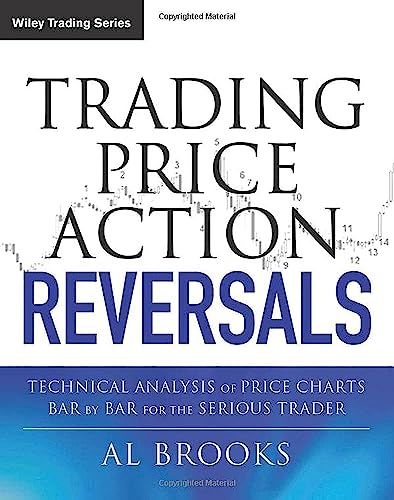- Miller, Frank (Author)
- English (Publication Language)
- 92 Pages - 11/01/2020 (Publication Date) - Independently published (Publisher)
Introduction
Reversal trading is a powerful strategy that can help traders unlock their profit potential in the financial markets. By identifying key market reversals, traders can take advantage of price movements and generate substantial returns. In this article, we will explore the concept of reversal trading and provide valuable insights on how to effectively implement this strategy.
Understanding Reversal Trading
Reversal trading is based on the principle that markets tend to reverse their direction after a significant price movement. This strategy involves identifying key reversal patterns, such as double tops, double bottoms, head and shoulders, and trendline breaks. Traders who master the art of reversal trading can capitalize on these patterns and make profitable trades.
The Importance of Timing
Timing is crucial in reversal trading. Traders need to be able to identify the right moment to enter or exit a trade. This requires a deep understanding of market dynamics and the ability to interpret price action accurately. By analyzing historical data, studying chart patterns, and using technical indicators, traders can enhance their timing skills and increase their chances of success.
Key Indicators for Reversal Trading
Several indicators can assist traders in identifying potential reversals. Some commonly used indicators include the Relative Strength Index (RSI), Moving Average Convergence Divergence (MACD), and Stochastic Oscillator. These indicators help traders gauge market sentiment, identify overbought or oversold conditions, and spot potential reversal points.
Implementing a Reversal Trading Strategy
To implement a reversal trading strategy effectively, traders need to follow a systematic approach. Here are some key steps to consider:
1. Identify potential reversal patterns: Look for double tops, double bottoms, head and shoulders, or trendline breaks on the price chart.
2. Confirm the reversal: Use technical indicators to validate the potential reversal. Look for divergences, crossovers, or extreme readings on the selected indicators.
3. Set entry and exit points: Determine the optimal entry and exit points based on your risk tolerance and profit targets. Consider using stop-loss orders to manage potential losses.
4. Monitor the trade: Once the trade is executed, closely monitor the price action and adjust your strategy if necessary. Trailing stops can be used to protect profits and minimize losses.
Risk Management in Reversal Trading
As with any trading strategy, risk management is crucial in reversal trading. Traders should never risk more than they can afford to lose and should always use appropriate position sizing techniques. Additionally, setting stop-loss orders and trailing stops can help protect capital and minimize potential losses.
Conclusion
Reversal trading is a powerful strategy that can unlock significant profit potential for traders. By mastering the art of identifying reversal patterns, understanding market dynamics, and implementing effective risk management techniques, traders can increase their chances of success in the financial markets. Remember to always conduct thorough research, practice on demo accounts, and continuously refine your strategy to stay ahead in the ever-changing world of trading.
- Miller, Frank (Author)
- English (Publication Language)
- 92 Pages - 11/01/2020 (Publication Date) - Independently published (Publisher)
- Hardcover Book
- Brooks, Al (Author)
- English (Publication Language)
- 576 Pages - 01/24/2012 (Publication Date) - Wiley (Publisher)
- Turner, Robert (Author)
- English (Publication Language)
- 83 Pages - 06/18/2023 (Publication Date) - Independently published (Publisher)
- Teally, Robb (Author)
- English (Publication Language)
- 142 Pages - 08/06/2024 (Publication Date) - Independently published (Publisher)
Last Updated on October 26, 2023 by ingmin




